He played the role of the leader of a guerrilla group that stayed in Cu Chi after the American raid on Cedar Falls (1967), in the work of director Bui Thac Chuyen. On this occasion, Thai Hoa talked about his passion for the profession at the age of over 50.
- After two years of dedication to the work, how did you feel when the film was released?
- On the day the film premiered in Ho Chi Minh City, I left early and did not stay to watch it with the crew. I prefer the feeling of buying a ticket to the cinema and choosing a seat with the audience. I am happy to receive positive feedback about my acting. Many people ask me about the hardships of filming this film, but I prefer to talk more about the joys. After a period of only filming comedies, horror films, and psychological-emotional films, I was challenged with a work that was difficult in both genre and setting, it felt like rushing into a real battle.
I was lucky to join the project. Never before has a war film - a risky subject in terms of revenue - been invested in by private producers so thoroughly. When I accepted the role, I proactively discussed with the crew to reduce my salary by half, as a way to share the pressure with them. I think the money issue here is very small, because I have witnessed many people in the crew working at a terrible intensity. For example, director Bui Thac Chuyen spent more than 10 years writing the script and conceiving the work.

- How did you prepare for the role?
- Before filming, I was so worried that I was stressed. I was afraid I wouldn't lose enough weight and wouldn't be able to portray the character's psychology properly. We had two months to practice, train our body, and prepare before filming.
Regarding my physical condition, I applied a weight loss regimen to have a suitable body shape. Many days, when I went to the filming set, I only ate fried rice, besides that, I still had to ensure my health according to the director's requirements. We also had to practice bending down to walk in a tunnel model with a diameter of only about 50 cm. Young actors like Anh Tu Wilson could do this easily, but at my age, my back was sore after walking for a while. Gradually, my body became lighter, my back muscles were flexible, and I could crawl all day long. We also spent a month with the Ho Chi Minh City Command training with real guns, learning how to fight with various weapons.
For psychologically complex scenes, I discussed the acting style with Mr. Chuyen in advance. I spent months carefully watching documentary videos on YouTube about Cu Chi, about the American army specializing in searching for tunnels. The film crew organized for the actors to meet and talk with veteran uncles and aunts, including the armed forces hero To Van Duc - who contributed to making landmines during the war in Cu Chi. However, the most important thing is to stick to the script to visualize the story line, everything else is just a reference to imagine the wartime atmosphere.
- Which scene is most memorable to you?
- The first part of the film - Bay Theo leads Hai Thung (played by Hoang Minh Triet) to explore the tunnel - was one of the most difficult scenes for me to handle. We took 20 takes to film because we had to coordinate with the lighting and sound department. The tunnel was very tight, we were suffocating while filming, our backs were sore, and we were sweating profusely. However, the cameramen were 10 times more tired. The cameraman had to follow us as we moved through the tunnel, with a camera weighing 9-10 kg.
There are also scenes that are not physically difficult but psychologically difficult, such as the scene where Bay Theo learns that many soldiers, including his daughter, have died. I received questions about why the character did not cry in that scene. In my opinion, that is a special part of wartime. Many soldiers - especially commanders like Bay Theo - cannot shed tears in the most painful situations. They cannot let themselves go with the flow of emotions to affect their comrades, but are forced to overcome.
- Do you have any regrets when looking back at your performance?
- I put all my heart into the scenes, but I feel sorry because some of my favorite scenes were cut by the director, including the ending scene of Bay Theo. Initially, the character had a scene of handing over the book of soldiers' achievements to Ba Huong (Ho Thu Anh) and Tu Dap (Quang Tuan), before sacrificing himself. That scene showed Bay Theo's ideal - a person who lives for his comrades. However, the director chose a different ending. Although a bit sad, I understand that Chuyen's decision was reasonable to make the film more complete overall.
- What do you think about the comments that Thai Hoa is the "box office king", the face that guarantees the work?
- Honestly, I feel pressured by those titles instead of proud, because the films I acted in lost more than they made. I tried to live my life with the work, and how it reaches the audience and how much revenue it generates is the producer's story.
For me, each role has its own life. Bay Theo is one of my brainchildren, as are many of my previous characters. When receiving a script, I don't have the habit of distinguishing between mainstream, art or commercial films. I love acting, so I also love the feeling of living with the character.

- You don't make many movies, how do you make a living?
- I'm not too rich but I don't feel like I lack anything. I think my life is summed up in the word "enough" - the "enough" comes from within. If you have 700-800 million VND in hand and dream of 70-80 billion VND, you will never feel satisfied. With my current salary, I can take care of my children's education and help some people. I also don't know if my film salary is much or little compared to the average (laughs).
- After nearly 20 years in the film industry, how do you keep your passion for the profession?
- The strange thing is that since the 1990s, when I entered the Ho Chi Minh City University of Theatre and Cinema, I have maintained my passion for acting and have not felt jaded. Some directors say they are lucky to have Thai Hoa in their projects, but I don't see it that way. I am happy that many filmmakers have sought me out, perhaps because they see my love for the profession.
I am wholeheartedly devoted to my career thanks to my wife. She is also the one who advised me to accept the script. Tunnel, After reading the story, I was moved by the image of the soldier. The memoir of my wife's grandfather - a soldier who fought in Cu Chi - was a valuable source of information to help me get into character. During the time I was on set, my wife stayed home to manage the family and take care of the children. I had few friends, so when I was stuck, only my wife helped me resolve it. I often compare her to a ray of light, always by my side so that I never lost my way.
Source: https://baoquangninh.vn/thai-hoa-toi-may-man-khi-dong-chinh-dia-dao-3352553.html


![[Photo] Ready for the top competitions of Vietnamese table tennis](https://vphoto.vietnam.vn/thumb/1200x675/vietnam/resource/IMAGE/2025/5/18/9c547c497c5a4ade8f98c8e7d44f5a41)




![[Photo] General Secretary To Lam visits exhibition of achievements in private economic development](https://vphoto.vietnam.vn/thumb/1200x675/vietnam/resource/IMAGE/2025/5/18/1809dc545f214a86911fe2d2d0fde2e8)
![[Podcast] - War Scars](https://vphoto.vietnam.vn/thumb/402x226/vietnam/resource/IMAGE/2025/5/18/9a131452559b41c9be4dc3798d0a4da0)

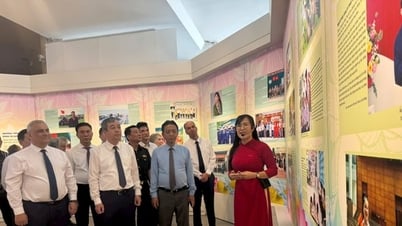



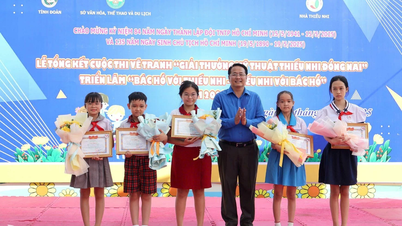

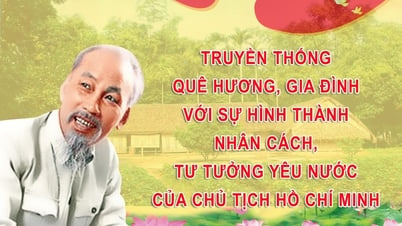





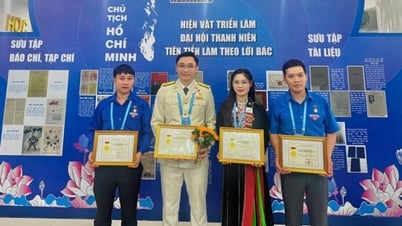
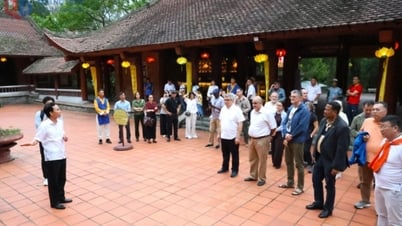
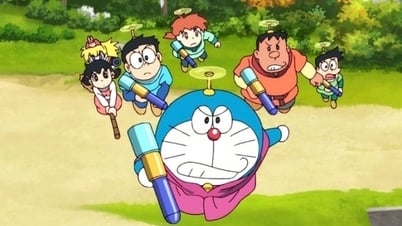



![[Photo] National conference to disseminate and implement Resolution No. 66-NQ/TW and Resolution No. 68-NQ/TW of the Politburo](https://vphoto.vietnam.vn/thumb/1200x675/vietnam/resource/IMAGE/2025/5/18/adf666b9303a4213998b395b05234b6a)















































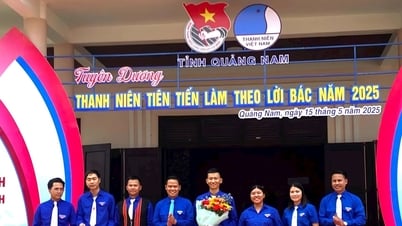

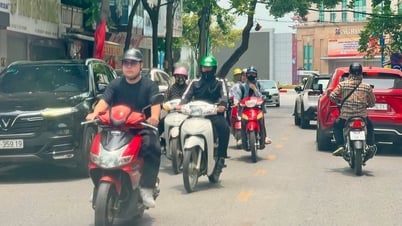











Comment (0)